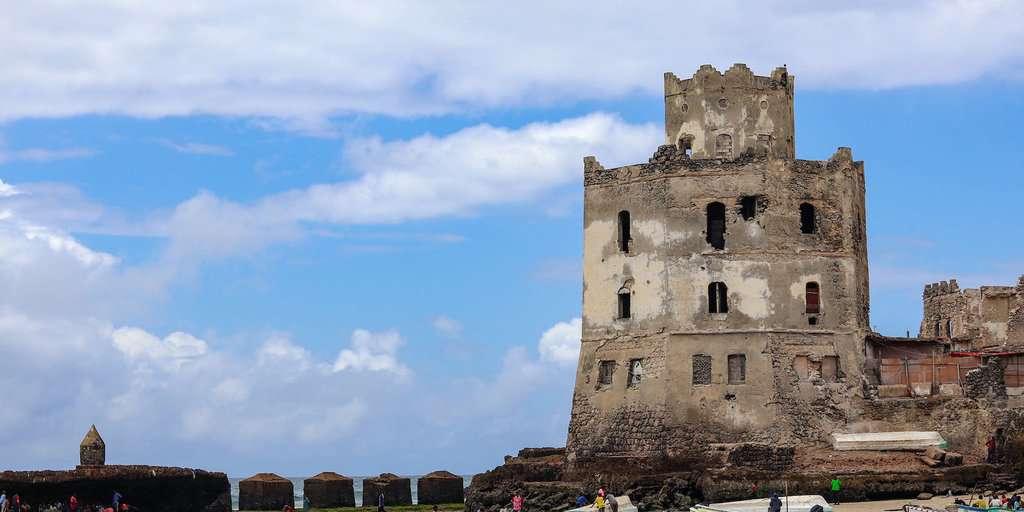Header Image Attribution: "Grey Olympics Concrete Block" by Anthony is licensed by PexelsThis post contains affiliate links. Our Extraordinary Planet may be compensated for any purchases you make.It’s easy to wonder in terms of history: did Somalia host the Olympics? While the country hasn’t had the opportunity to host an Olympic Game, it has participated in several games since the 1972 Summer Games in Munich. Here’s what you need to know about Somalia’s participation in the Olympics.
A History of Somalian Athletes in the Olympics
Embarking on a historic journey, Somali athletes made their debut on the Olympic stage in 1972, gracing the Summer Games held in Munich. A trio of remarkable individuals represented the nation with pride and determination. In the realm of track events, the spotlight shone on Mohamed Aboker and Jama Awil Aden, showcasing their athletic prowess and embodying the spirit of competition. Meanwhile, the high jump arena saw the impressive skills of Abdullah Noor Wasughe, who aimed to leave a lasting mark on the world stage.
Delving into Somalia’s Olympic legacy, the roots trace back to a significant moment in 1959 when the Somali Olympic Committee was founded on December 12th by Ali Omar Scego. Despite missing out on the 1960 Games and facing a temporary organizational setback, the spirit endured. A resurgence of interest propelled Somalia back onto the Olympic stage in 1972, marking a triumphant return to the global sporting arena.
In the aftermath of the 1972 Summer Games in Munich, Somalia took a principled stand by opting out of the 1976 Summer Games. Their decision stemmed from a firm stance against legitimizing New Zealand, whose team was touring apartheid-era South Africa at the time. This bold move underscored Somalia’s willingness to use the platform of the Olympics to advocate for justice and equality on the global stage.
Adding another chapter to its Olympic history, Somalia participated in a US-led boycott of the 1980 Olympics in protest against the Soviet Union’s invasion of Afghanistan. This strategic move reflected Somalia’s solidarity with the international community in condemning the invasion and standing up for the principles of sovereignty and global peace.
The country finally reemerged in the games in 1984 with seven athletes. Several of these athletes did quite well. Abdi Bile reached the second round of the 800 meter race, while Mohamed Ismail finished the marathon in 47th place.
Making a triumphant return to the Olympic stage in 1984, Somalia sent a delegation of seven athletes, marking a significant comeback after their earlier abstention. Among the notable performances, Abdi Bile showcased his prowess by reaching the second round of the 800-meter race, capturing attention and admiration. Meanwhile, in the marathon event, Mohamed Ismail demonstrated resilience, securing a commendable 47th place.
A pivotal moment in Somalia’s Olympic history unfolded in 2000 with the groundbreaking participation of Safia Abukar Hussein, marking the country’s first female athlete to grace the international event. Fast-forward to the subsequent Olympic Games, and another remarkable talent emerged in the form of Farah Weheliye Addo. At the age of just 16, Farah garnered international acclaim for her outstanding performance, becoming a symbol of youthful prowess and determination on the Olympic stage.
Regrettably, recent challenges stemming from the Civil War have cast a shadow over Somalia’s Olympic participation. The tragic loss of Farah Weheliye Addo serves as a poignant reminder of the formidable hurdles faced by Somali athletes. In a heartbreaking turn of events, Farah lost her life while attempting to migrate to Italy, where she sought additional training resources and greater support as a female athlete.
Beyond Somalia’s borders, the nation’s athletic spirit continues to shine brightly through individuals representing other countries. Notably, Mo Farah has emerged as a standout figure. In the 2012 Olympics, he claimed dual gold medals for Great Britain, an achievement he repeated in 2016 with two more golds to his name.
Will Somalia Ever Host the Olympics?
Did Somalia host the Olympics? While the country may not have had the opportunity to host an Olympic Game in the past, it’s impossible to rule out Somalia as a site for Olympic Games in the future. Despite the setbacks from the Civil War, Somalia’s government has made strides in ensuring peace with each passing year.
As Somalia progresses, the dream of hosting an Olympic Games on its own soil becomes an exciting possibility. Meanwhile, the African continent, rich in diversity and talent, awaits its inaugural Olympic Games. Despite South Africa’s setback in 2021 when the opportunity to host the 2022 Commonwealth Games was withdrawn due to budget constraints, the International Olympic Committee (IOC) is actively exploring options for an African host. Notably, Senegal has emerged as a contender in these discussions.
Africa secured its place in Olympic history with the announcement that the Youth Olympics in 2026 will be hosted in Dakar, Senegal, marking the continent’s inaugural Olympic Games. This historic milestone not only celebrates Senegal’s achievements but also opens up exciting possibilities for other African cities. Looking ahead, the prospect of a city like Mogadishu hosting the Olympics is no longer a distant dream.
So Did Somalia Host the Olympics?
When it comes to the question of did Somalia host the Olympics, the simple answer is no. While Somalia might have never hosted an Olympic Game, participants from Somalia have made a name for themselves since the country first participated in the Olympics in 1972. In the future, it’s likely we’ll see Somalia’s involvement in the Olympics grow ever more prolific.



